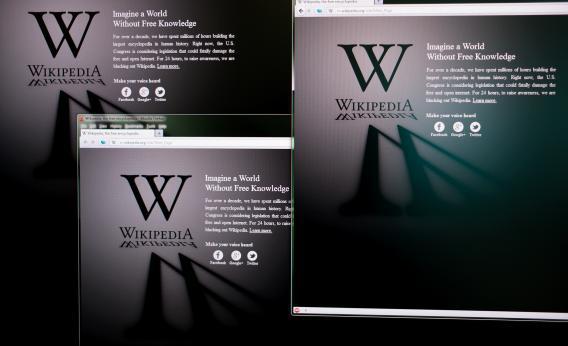Who holds more power: media lobbyists, or Internet heavyweights? After today we may know the answer.
High traffic websites including the English language version of Wikipedia, Craig’s List, Reddit and others have blacked out to protest two anti-piracy bills moving through Congress that they say threaten freedom and innovation on the Web. Even Google black-barred it’s logo on the company’s search page, which, when clicked on, takes you to a petition to sign against the bills, informally called SOPA and PIPA.
Some sites can still be accessed by changing browser settings or through redirects. But the online protest will likely reach the eyes of hundreds of millions of users, reflecting an unprecedented unified push by online companies that worry the legislation will give media organizations too much power to shut them down for copyright infringement.
The online actions have already created a fair amount of confusion and anger on the web, from people wondering why “Wikipedia is against soap,” to the creation of a popular hashtag: #thingsbetterthanSOPA.
Legislation supporters have called the day’s actions merely a publicity stunt. Then again, publicity impacts policy every day. Just ask the Internet.
